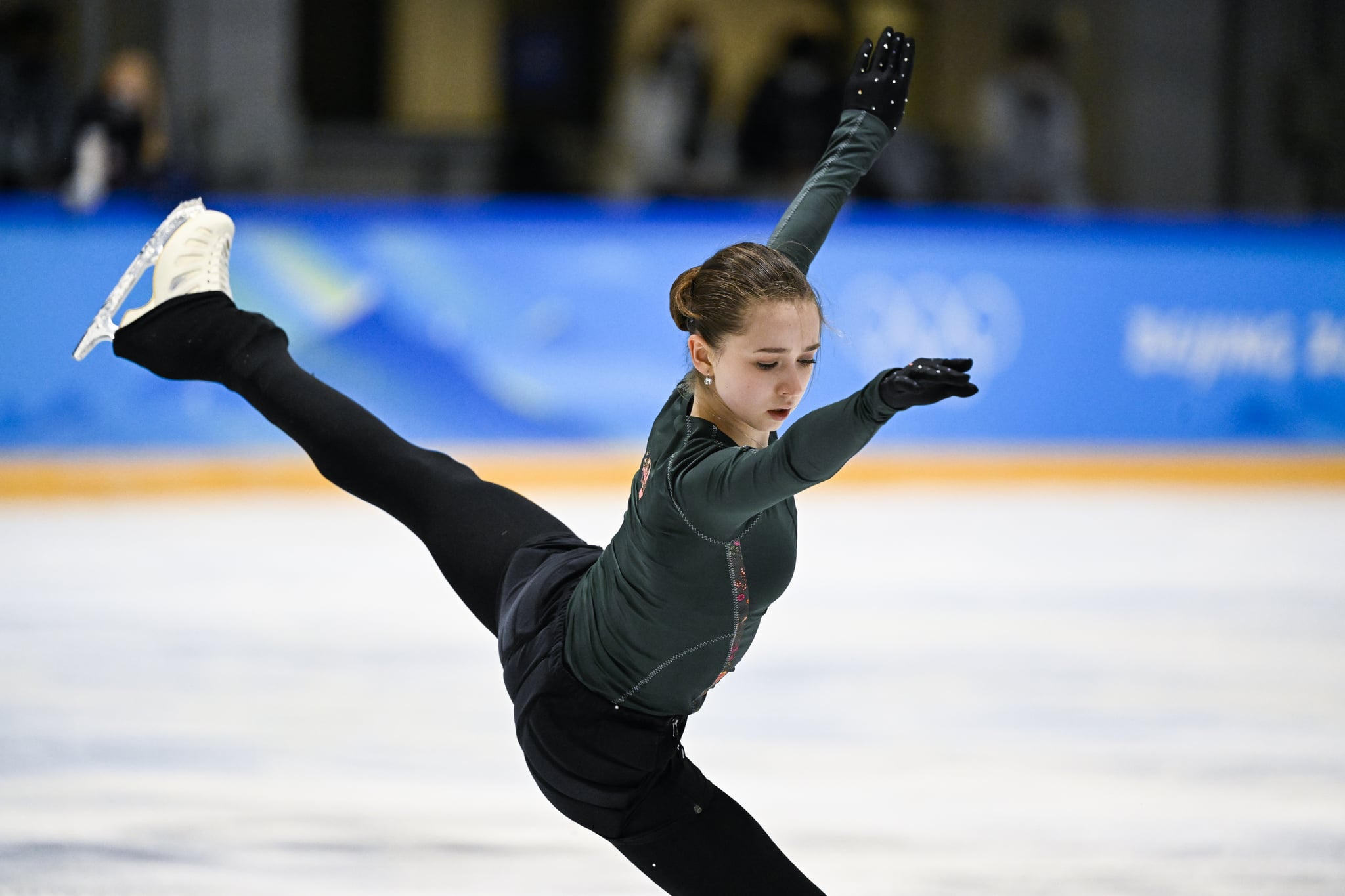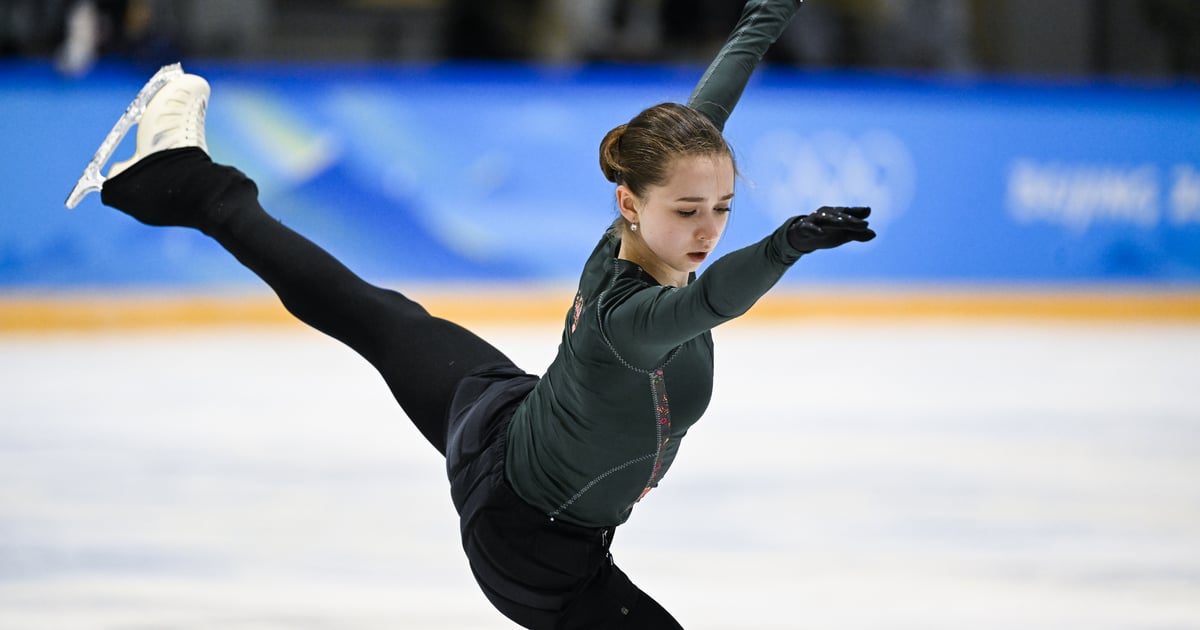
Even as athletes from around the world achieve incredible feats at the 2022 Winter Olympics in Beijing, one story is overshadowing all the rest at these Games: a doping scandal involving Kamila Valieva, a 15-year-old figure skater representing the Russian Olympic Committee, who tested positive for a banned substance. The case has raised questions about whether or not Valieva should be eligible to compete. New information continues to emerge, but here’s what we know so far.
What Drug Did Valieva Test Positive For?
According to the Associated Press, Valieva tested positive for trimetazidine on Feb. 8, one day after she and her teammates won the gold medal in the figure skating team event. Trimetazidine is banned, both in and out of competition, by the World Anti-Doping Agency (WADA). Typically used to treat heart conditions like angina, trimetazidine is thought to increase blood flow and improve endurance, which could be an incentive for athletes to take it illicitly.
On Feb. 15, the New York Times reported that Valieva’s sample also contained two other substances used to treat the heart (hypoxen and L-carnitine), neither of which is banned. Valieva disclosed both of these drugs on a doping control form, and in testimony, her mother said that Valieva had been taking hypoxen due to heart “variations.” However, a doping expert told the Times that this “trifecta of substances” could be used to improve performance.
When Was Valieva’s Drug Test Administered?
Valieva’s sample was collected on Dec. 25, during the Russian national championships. It’s not quite clear why there was such a long delay between the taking of the sample and the report of the positive test. The Associated Press reported that a January COVID-19 spike in Sweden, where the WADA-accredited lab is located, may have been a factor. Reuters, meanwhile, reported a mutual finger-pointing between WADA, the lab, and the Russian Anti-Doping Agency (RUSADA). RUSADA claims that the lab promised to prioritize Valieva’s test in time for the Olympics, while WADA claims that RUSADA failed to request that the lab do so, making it impossible for the lab to know that they had a priority sample on their hands.
RUSADA itself is fresh off some major scandals. In 2019, WADA ruled the agency noncompliant with international anti-doping standards. Their recommended four-year period was reduced to two years by a ruling from the Court of Arbitration For Sport (CAS). This came after revelations that Russia ran a massive, state-sponsored doping scheme during the 2014 Winter Olympics in Sochi, which resulted in a ban of the Russian name, flag, and anthem from several Olympics, including the current Winter Games in Beijing.
Valieva, under the ROC banner, entered the Olympics as a favorite for the individual gold medal. Along with training mates Anna Shcherbakova and Alexandra Trusova, Valieva is one of the only women in the world who can land quadruple jumps, an element that’s common in men’s skating but almost nonexistent in the women’s event. During the team event, Valieva became the first woman ever to land a quad at the Olympics. After her sample came back positive for trimetazidine, Valieva was temporarily suspended by RUSADA, then reinstated, at which point the International Olympic Committee (IOC) and the International Skating Union (ISU) appealed to CAS.
Why Is Valieva Still Allowed to Compete at the Olympics?
Following an emergency appeal hearing by CAS, the IOC and the ISU lost their appeal to have Valieva’s suspension reinstated. The case was not heard in full at that time; the only matter being heard was the question of whether or not Valieva should be permitted to compete in the women’s individual event, starting on Feb. 15. Because the suspension was not reinstated, Valieva is indeed competing as planned.
In the decision handed down by the CAS, the arbitrators stressed that this verdict was not intended to establish Valieva’s guilt or innocence or determine her eligibility or that of her support staff. “The CAS Ad hoc Division was requested to determine the narrow issue as to whether a provisional suspension should be imposed on the athlete. It was not requested to rule on the merits of this case, nor to examine the legal consequences relating to the results of the team event in figure skating, as such issues will be examined in other proceedings,” the statement reads in part.
What Impact Will the Valieva Decision Have on the Olympics?
As a result of this decision, both the IOC and the ISU have made provisions for Valieva’s still questionable status. The IOC announced that there would be no medal ceremonies for any events in which Valieva medals. This means that there will be no team event medal ceremony during the Olympics, and if Valieva does wind up on the individual podium as predicted, there will be no medal ceremony for the women’s event either.
At the same time, the ISU decided to change the qualifying cutoff for the free skate in the women’s individual competition. Usually, the top 24 skaters in the short program qualify to move on to the free skate segment. Due to the circumstances, the ISU and the IOC agreed to qualify the top 25 skaters instead. Essentially, both governing bodies overseeing the figure skating competition are treating Valieva’s presence with a figurative asterisk next to it.
Of course, this still has an immediate impact on the athletes, particularly those who competed in the team event and those who are competing in the women’s individual event. None of the medalists will get to have their medal ceremony, with the formal presentation of medals and the raising of their national flags, at the Olympics. If the ultimate outcome of the case involves the retroactive disqualification of Valieva from both the team and individual events, Team USA will most likely be moved up to gold medal position in the team event, with Team Japan taking silver and Team Canada getting on the podium with bronze. The result of the women’s competition have not yet been determined.
When Will a Decision Be Made Regarding Valieva’s Medal Eligibility?
At this time, no timeline has been given for deciding the rest of the case. Valieva’s eligibility could be settled quickly, but, more likely, it could take months for a final decision to be made. There are other questions raised by the situation too, not just on Valieva’s eligibility. Because she is a minor and thus a “protected person” under international anti-doping rules, the directive is to closely investigate her “support staff” of coaches, choreographers, doctors, and so on.
The Associated Press reported that those staffers could also be pursued under an American law. Called the Rodchenkov Act, after the whistleblower who exposed the Russian state-sponsored doping scheme at the 2014 Sochi Olympics, the law targets coaches, doctors, and other staff members who arrange doping schemes in events (like the Olympics) that involve American athletes, sponsors, or broadcasters. It’s just one more twist in a tangled story that threatens to overshadow the other major moments at these Olympics.
